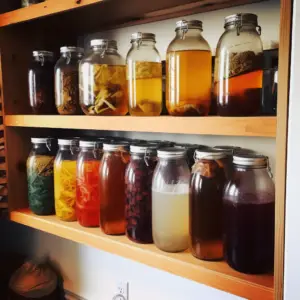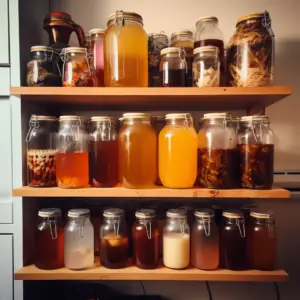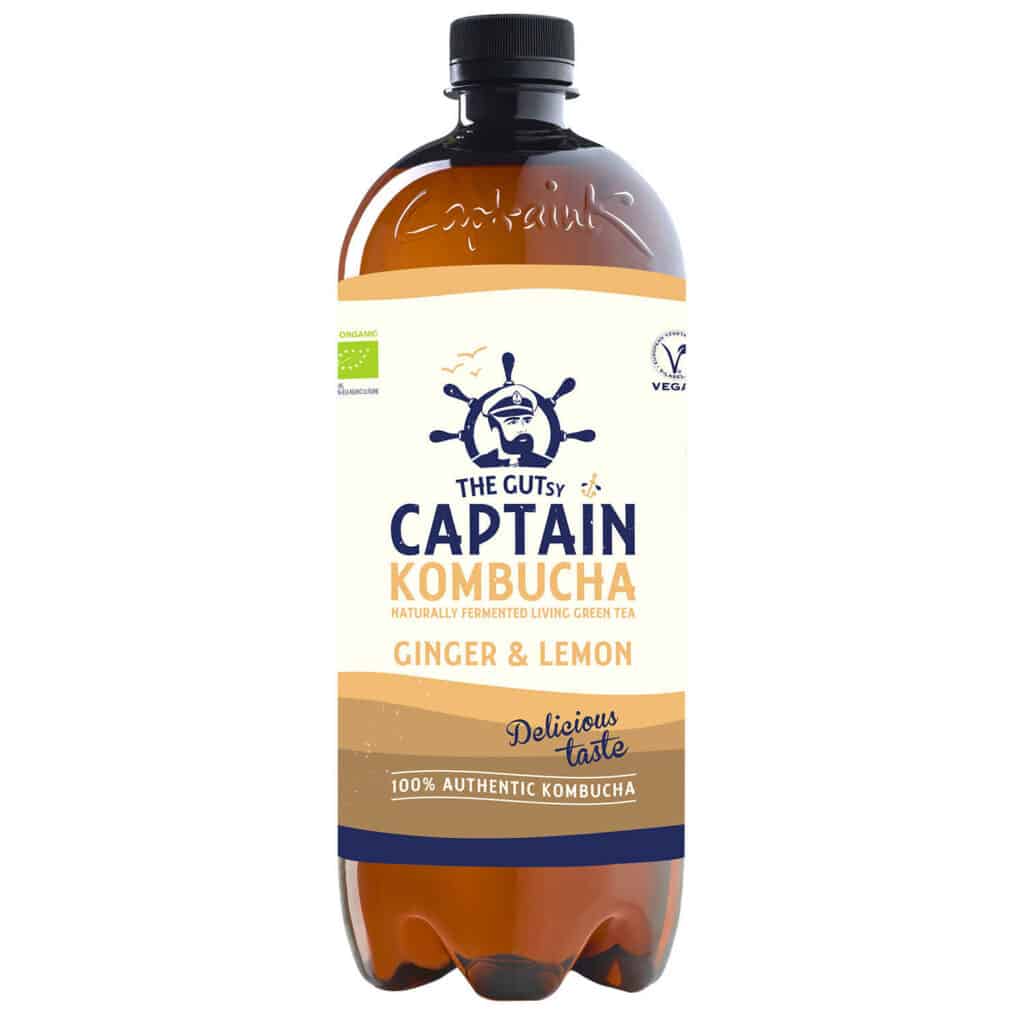Kombucha’s Shelf Life, In a relatively short period, kombucha has established itself as an essential component of a healthy lifestyle. We’re sure you’re aware of the potency of sparkling, fermented tea, but how much do you truly know about this drink?
You’re probably full of questions, just like when you add anything new to your diet. One of the numerous questions that many people, including yourself, have is, “How long does kombucha last after opening?”
This quick guide will help answer the question and any other question relating to the shelf-life of kombucha and explain how to properly store your kombucha to get the most flavor and potency out of every sip.
Table of Contents
How Long Does Kombucha Last After Opening?

Kombucha’s Shelf Life is not always possible to consume all of your kombucha drink in one go. This is especially true if you have a larger bottle, such as a 1-liter bottle. How long do you have to consume it once you’ve opened it and set the rest aside for another day?
The kombucha interacts with the air as soon as you open the bottle, and it may lose its carbonation. As a result, kombucha is recommended to be drunk within a week of opening, just as you would with a bottle of soda.
Though the beverage will not spoil if stored properly for more than a week, it will lose a little bit of its effervescence.
How Long Does Commercially Bottled Kombucha (Unopened) Last?
Kombucha should have no “bad bacteria” or mold due to the acidity and presence of yeast and beneficial bacteria. This implies you can securely store it in the refrigerator for several months, often six to eight months.
However, if you store the kombucha outside of the fridge, the fermenting process will continue to make your kombucha increasingly acidic until it becomes vinegar. While this is not dangerous to drink, it is not as tasty.
How Long Will Homemade Kombucha Last?
Maybe you’re a Kombucha wizard, and you’re making your Kombucha concoctions at home. Once you’ve prepared a batch, you can anticipate your homemade kombucha to last for one to three months in the fridge.
Why Do Store-Bought Brands of Kombucha Have a “Sell By” or “Best By” Date on the Bottle?
Even though it is not required by federal law, many Kombucha firms are members of the Food Marketing Institute and the Grocery Manufacturers Association, which require an expiration date to be placed on the bottle.
Even after the expiration date, kombucha is typically safe to consume; however, it might be tarter, and you should always use your best judgment skills when it comes to any strange flavors or smells.
What Happens if You Fail to Refrigerate Your Kombucha?
Many foods and drinks necessitate a consistent, specific temperature range. Like juice, meat, and dairy products, kombucha requires refrigeration to keep the microorganisms alive and active.
When stored at room temperature, the live cultures become more active, producing alcohol, a sour flavor, and extra carbonation.
How Can You Tell if Your Kombucha Has Gone Bad?
Sometimes you’ll find a bottle of kombucha at the back of your fridge, but how can you know if it’s gone bad?
Although kombucha has a long shelf life, there are some circumstances in which you should discard the beverage. If the kombucha is past its sell-by date or has not been properly stored, it may taste vinegary or overly tart.Kombucha’s Shelf Life is up to personal preference, but it could indicate that it is time to discard the bottle.
However, if you notice some floaties or strands in the bottle, don’t be worried. These sediments are part of the kombucha ingredients and are quite normal if you haven’t opened the bottle in a while. Before drinking, carefully flip the bottle and swirl it to mix.
How Do You Store Kombucha For the Best Results?
To achieve the best results, keep your kombucha in the refrigerator at all times. This is primarily due to the beverage’s necessity for constant refrigeration to retain living cultures, quality, and flavor.
Kombucha contains living cultures, just like yogurt and kefir. When these cultures are left at room temperature, they become more active, resulting in alcohol, excess carbonation, and a sour flavor.
What Temperature Should You Store Kombucha At?
The only way to store your kombucha supply is in the refrigerator. Maintain a temperature of around 4 degrees Celsius; anything below will drive the live cultures to hibernate.
What Are the Risks of Consuming an Expired Kombucha?

Kombucha provides a slew of health benefits to humans. However, it is not to everyone’s taste. If you’re not one of these people who don’t like kombucha, then you can consume it for an extended period without worrying about it spoiling.
Unfortunately, it will not endure indefinitely, so you must learn to distinguish between a healthy product and one that has gone bad and has become hazardous.
The most important question is whether consuming expired kombucha poses any hazards. Because not everyone reacts in the same manner, the answer can be tricky. Even if the beverage is not expired, some people experience digestive discomfort and bloating after drinking it.
Newly introduced bacteria may cause gut reactions because they disrupt the natural balance. Additionally, the carbonation in this drink may cause your stomach to react, especially if you are not used to this type of beverage. Furthermore, kombucha includes significant FODMAP sugars, which can cause digestive issues.
Keep in mind that this beverage may be hazardous to some people. Bacteria are the main issue. Even though kombucha contains one of the helpful microbes, harmful microorganisms can be introduced during the production process. A strong immune system will easily handle them, but sensitive people and convalescents should avoid drinking Kombucha’s Shelf Life.
Kombucha is not recommended for:
- Children whose immune system has not fully developed
- Those who are immunocompromised
- Ladies who are pregnant
- Women who are breastfeeding
Conclusion
Kombucha has become one of the most popular drinks you will likely encounter in many food stores. The drink can last for months and can even be consumed after the sell-by date printed on its packaging, thanks to its fermentation process.


